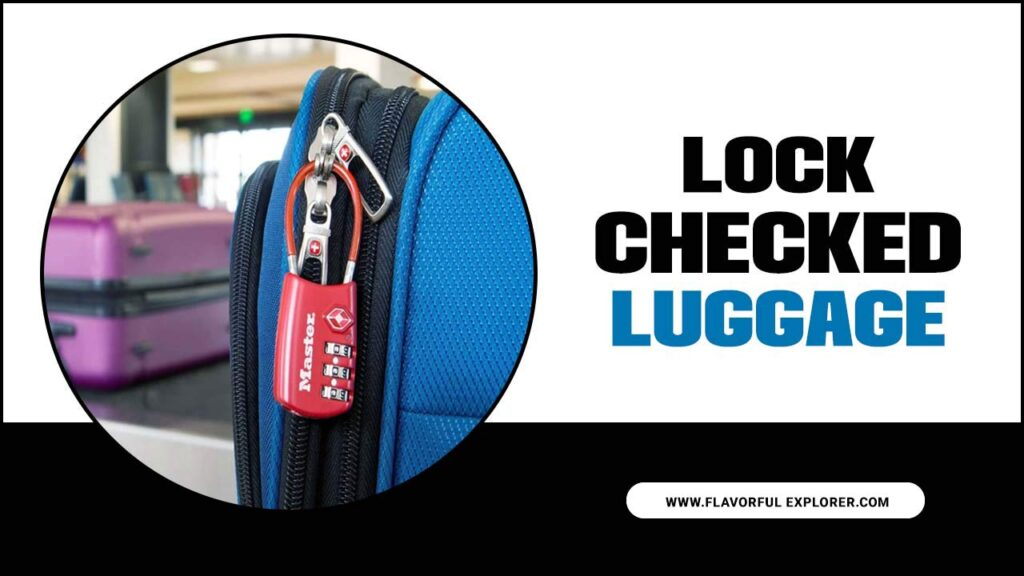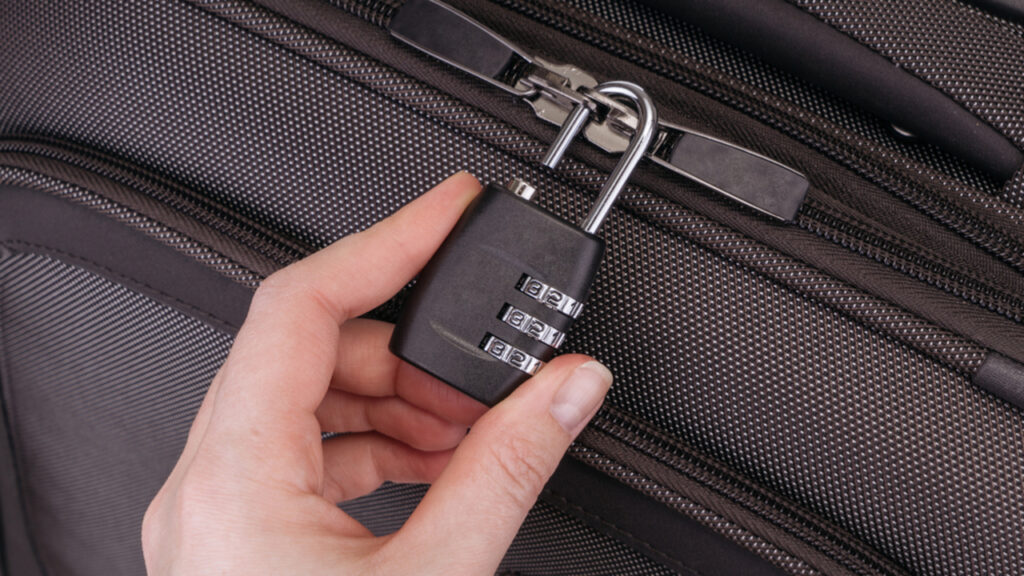Lock Checked Luggage: Keep Your Luggage Safe

As a frequent traveller, you may have experienced a moment of panic when you open your checked luggage and realize that some of your belongings are missing.
Unfortunately, this is a common occurrence that happens more often than you may think. The Transportation Security Administration (TSA) reported that over 4,000 bags were mishandled daily in 2019. While most of these bags were returned to their owners, a small percentage were lost or stolen. This is why locking your checked luggage every time you travel is crucial.
Here, we’ll discuss the importance of locking your checked luggage and how to lock checked luggage. We’ll also dive into the available luggage locks, including TSA-approved ones. So, grab your favourite suitcase, and let’s talk about keeping your luggage safe during your
Locking Your Checked Luggage

Locking your checked luggage is important to protect your belongings while travelling. Here are a few reasons why it’s important to lock your checked luggage.
It’s important to use TSA-approved locks when travelling by air, as they can be easily opened by security personnel if necessary. Additionally, always check the regulations and guidelines of the airline you are flying with regarding locked luggage to ensure compliance.
- Prevent theft: Locking your luggage can deter potential thieves from accessing and stealing your belongings. It adds an extra layer of security and makes it more difficult for someone to tamper with or open your bags without your knowledge.
- Protect against unauthorized access: By locking your luggage, you can ensure that only you or authorized personnel have access to the contents of your bags. This can help prevent anyone from adding or removing items without your permission.
- Maintain privacy: Locking your luggage helps maintain the privacy of your items. It gives you peace of mind knowing that your belongings are secure and not easily accessible to others.
- Reduce the risk of damage: Locking your luggage can also help prevent accidental damage or spillage during handling and transit. It provides added protection to fragile items and helps keep everything in place.


 Check Out This Book
Check Out This Book


















0 Comments: